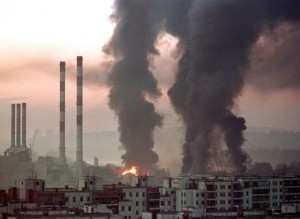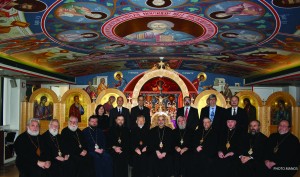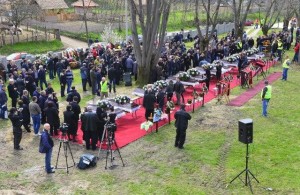March 24, 2013
Today marks the 14th anniversary since the start of the NATO bombing campaign against Serbia, i.e. the former Federal Republic of Yugoslavia (SRJ).
 The bombing lasted 79 days and resulted in at least 2,500 deaths and more than 12,500 injuries.
The bombing lasted 79 days and resulted in at least 2,500 deaths and more than 12,500 injuries.
The attacks on Serbia started on March 24, 1999, and the last one took place near Kosovska Kamenica on June 10 at 13:15 CET.
The death toll among the military and police forces reached 1,008, including 659 soldiers and 349 policemen. Around 6,000 civilians were injured, including 2,700 children.
The total damage was estimated at dozens of billions of dollars. NATO has never disclosed its losses.
“The NATO forces killed 631 members of the Serbian Armed Forces, while 28 went missing, which means that the total number is 659, including 72 officers, 41 noncommissioned officers, 18 contract soldiers, 191 conscripts, 245 reservists, 60 military volunteers and three civilians in the army,” Serbian Defense Minister Aleksandar Vučić stated in the Serbian parliament on February 11, 2013.
According to earlier data, 5,173 soldiers and policemen were injured.
The decision to attack Yugoslavia was the first in history to be made without the approval of the UN Security Council, and the order was given to U.S. General Wesley Clark, the allied commander at the time, by NATO Secretary General Javier Solana.
Later on, in his book “Waging Modern War”, Clark revealed that the plans for the air strikes against Yugoslavia were well under way in mid-June 1998 and completed in late August that year.
Yugoslavia was attacked under the pretext of failure of the talks on the future status of the southern Serbian province of Kosovo, held in Rambouillet and Paris.
After the decision on non-acceptance of foreign troops was ratified by the Serbian parliament, which proposed the UN forces to monitor a peaceful resolution of conflicts in Kosovo, NATO launched air raids on March 24, 1999 at 19:45 CET.
The 19-member Alliance launched projectiles from ships in the Adriatic Sea and four military bases in Italy, all with the support of strategic operators who took off from the basis in Western Europe and latter in the U.S. The first targets were barracks and air defense forces in Batajnica, Mladenovac, Priština and other locations.
There is practically no city in Yugoslavia which was not targeted on a number of occasions during the 11-week campaign.
The bombing caused damage to 25,000 houses and apartment buildings and destroyed 470 kilometers of roads and 595 kilometers of railway tracks. A total of 14 airports were damaged, as well as 19 hospitals, 20 healthcare centers, 18 kindergartens, 69 schools, 176 cultural monuments and 44 bridges, while 38 more were completely destroyed.
During the campaign, 2,300 air attacks were carried out on 995 facilities around Serbia and 1,150 fighter jets fired nearly 420,000 missiles to the total weight of 22,000 tons.
NATO fired 1,300 cruise missiles, dropped 37,000 cluster bombs which killed around 200 individuals and caused injuries to several hundred more people. The forces also used banned depleted uranium ammunition.
A third of the electric energy capacity of the country was destroyed, two oil refineries, in Pančevo and Novi Sad, were bombed, and NATO forces used for the first time the so-called graphite bombs to disable electrical power systems.
Facing mounting diplomatic pressure, NATO ended the bombing with the signing of the Military Technical Agreement in Kumanovo on June 9, 1999, and the latest missiles fell near Kosovska Kamenica on June 10 at 13:30 CET.
The NATO secretary general issued an order to stop the bombing on June 10, after which the Yugoslav forces began to withdraw from Kosovo.
On that day, the UN Security Council adopted Resolution 1244, and a total of 37,200 KFOR soldiers from 36 countries were sent to the province, with a mission to preserve peace and security.
Serbian PM Ivica Dačić will on Sunday lay a wreath at the monument to the killed members of the Serbian Army in Belgrade’s neighborhood of Rakovica. Vučić will lay a wreath at the monument to members of Air Force and Air Defense in the neighborhood of Zemun.
Belgrade Mayor Dragan Đilas will pay respect and lay a wreath to the killed workers of the Radio Television of Serbia (RTS) in Tašmajdan Park. Novi Sad Mayor Miloš Vučević will attend a commemoration in Novi Sad’s Jugovićevo army barracks.
Labor, Employment and Social Policy Ministry’s State Secretary Negovan Stanković will lay a wreath to the monument to children killed in the NATO bombing in Tašmajdan Park.
Source: B92.net



















